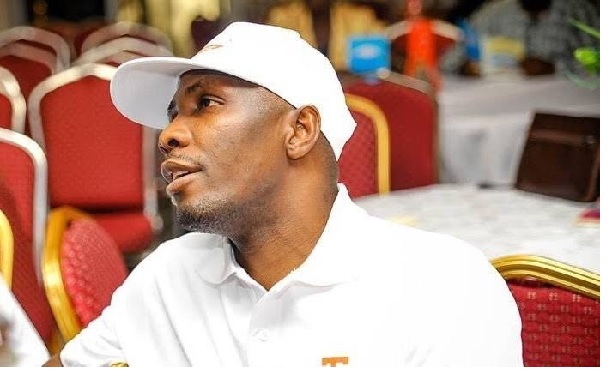Tompolo, whose real name is Government Oweizide Ekpemupolo is an activist and former militant leader. Tompolo gained widespread prominence during the mid-2000s for his fight against perceived massive economic inequalities, fraud, and environmental degradation meted out on the oil-rich region of Niger-Delta in the South-South region of Nigeria. Tompolo had served as a leader of the Movement for the Emancipation of the Niger Delta, MEND, a militant group that held sway in the Niger Delta region of Nigeria. Tompolo is married to Victoria Government Ekpemupolo.

This is all you need to know about Tompolo’s wife, Victoria Government Ekpemupolo :
-
Early Life and Education
Victoria is a native of Delta State through her precise community of origin is not known. Victoria obtained elementary education, getting her First School Leaving Certificate upon completion of Primary School. She proceeded to receive secondary education, obtaining her Senior Secondary Certificate Examination. Information on whether she pursued higher learning at the university or not is not readily available.
-
Marital Life
Tompolo is married to Victoria and they have been together for more than a decade. The couple has a daughter together named Mary Ekpemupolo, and she is an adolescent at the time of writing. Much is not known about Victoria and her daughter as Tompolo insulated his immediate family from public attention. The couple and their daughter reside in Delta State.
-
Who is Tompolo?
-
Early Life and Education
Tompolo, whose real name is Government Oweizide Ekpemupolo was born April 12, 1971, into the Okerenoke Royal family in the Gbaramatu Kingdom, Warri South Local Government Area of Delta State. Tompolo is the only son of the seven children of Thomas Osei Ekpemupolo and Mrs. Solongha Ekpemupolo. Tompolo grew up in Warri, Delta State where he acquired elementary and secondary education. After completion of elementary education, Tompolo went on to receive secondary school education from National Comprehensive College, Warri, where he obtained his Senior Secondary Certificate Examination, but Tompolo did not further his education to tertiary level.
-
Activism
In 1993, after Tompolo had dropped out of college, he briefly served as manager for his father’s company, Tompolo Nigeria Limited, which was an oil-servicing firm. Later on, Tompolo ventured into activism during the fracas between the Ijaws and the Itshekiri ethnic groups in Warri, Delta State. In 1998, Tompolo joined the Ijaw Youth Council, a civil rights organization with support for the interests of the Ijaw ethnic group at its core. Later on, Tompolo left the Ijaw Youth Council to form Camp Five in Okerenkoko, Delta State. Camp Five was the operational headquarters and base for Tompolo and his group of armed agitators. Camp Five provided resources to armed agitation groups in terms of finance. With the formation of Camp Five, Tompolo built a network of like-minded activists in the struggle for equitable resource distribution in the Niger Delta region of Nigeria.
In 2004, right within Camp Five premises, the Movement of the Emancipation for the Niger Delta, MEND, was formed. Henry Okah, Asari Dokubo, John Togo, Ateke Tom, Victor Ben, Godswill Tamuno and Tompolo were among the founding members of MEND. The Movement of the Emancipation of the Niger Delta, MEND, grew to become a large militant faction with its purposes including localizing control of Nigeria’s oil, securing reparations from the Federal Government for pollution influenced by the oil industry, agitation against economic inequalities, and environmental degradation in the Niger Delta region. Tompolo later headed the militant group, MEND, directing the affairs of the group towards achieving its objectives with the application of asymmetric warfare. The Movement of the Emancipation of the Niger Delta was connected to attacks on petroleum operations, guerilla warfare, kidnapping of expatriates, draining off of oil, and selling on the black market. During the height of the activism led by Tompolo and other factions with similar regional ideology, unrest developed in the oil-rich region. This led the Federal Government of Nigeria, under the leadership of Late President Umaru Musa Yar’Adua to offer amnesty to the armed agitators in the Niger Delta region in a bid to ease the tension.
On October 4, 2009, Tompolo accepted the amnesty offer from the Federal Government of Nigeria. Tompolo’s acceptance of the amnesty offer facilitated other militant factions to give up arms, numbering around 30,000 militants.